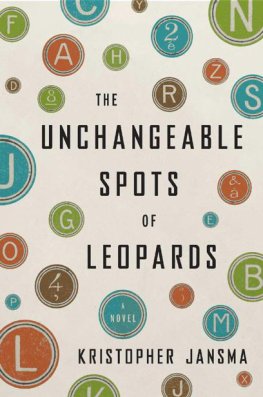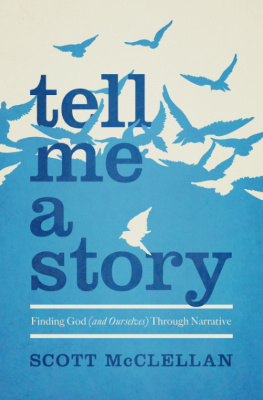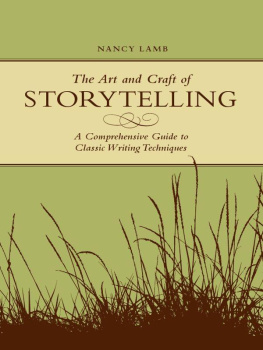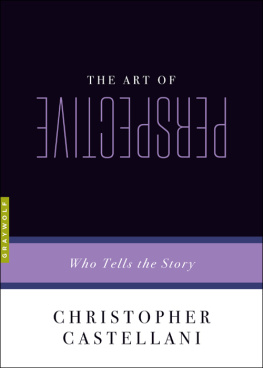Magdalena Tulli
Moving Parts
THE CREATION OF WORLDS! NOTHING COULD BE SIMPLER. Apparently they can be conjured out of thin air. And for what? To delight the eye with their shimmer as they ascend toward the light, trembling like soap bubbles. Then theyre swallowed up by darkness. When they rise, its as if they were already falling. But are they not splendid? Theyre casually called into being and thrown carelessly into the void; there is no one to save them. The narrator, a rather secondary figure, knows nothing more about it; he acknowledges this with regret. Alone and faced with accomplished facts, he is concerned about one thing only: that he should avoid descending into banality from the very first sentence. If he could, hed prefer to walk away with his hands in his pockets, leaving everything to the mercy of fate, which he has not been permitted to influence; or at the very least to abide stubbornly in an eloquent, arrogant silence. But the narrator realizes he has nowhere to go. The privilege of arrogance is also denied him. The kind of life that has fallen to his lot, insofar as it can even be called a life, offers no opportunity for choice. A tale someone has nonchalantly conjured up must suffice for the entire substance of his existence. A tale hungry for subjects and predicates, lodged in their tissue like a rare species of rapacious parasite. The narrator would dearly like to believe that the one who summoned him into being knows more, that he comprehends the whole and knows the ending. But the latter does not appear in person either on the present page or those following; he doesnt respond to letters and faxes. It may be that for weeks he has been languishing in bed, in rumpled sheets, turned away from the world, face to the wall, surrounded by empty bottles or used needles; who could possibly know? So when a tragic turn of events elicits giggles from the back rows, or when a joke dies in cheerless silence, the narrator knows that there is no one he can turn to, and that the whole affair is his responsibility alone. He must button his lip in humility, then move on to the next sentence as if nothing had happened like a clown in checkered pants who, falling off a chair amid peals of laughter from the audience, immediately starts to climb a rickety stepladder without interrupting his monologue: a pathetic figure, peremptorily consigned to a here below comprising a ring yellow with sawdust, tripping up again and again on even ground, and trapped in perpetuity in the vicious circle of the show. The acts likely to appear in the sawdust-strewn ring are tediously familiar to all those sitting in the rows of seats, including the small children, who fidget as they wait for the performing elephant to make its entrance. The monologues too are known by heart, including the round button of the last sentence on which the loop of the beginning is fastened, and also the dubious, unconvincing conclusion, which induces no more than a shrug of the shoulders. Every word has been heard a thousand times or more. What does it matter that it was in other sentences? No one is interested in the details. Its all so numbingly hackneyed, say the glazed looks. This is precisely why its better to be a reader than a narrator. Its pleasant to chew gum, set the rustling pages in rapid motion and, when the last one is turned, to toss the book back on the shelf. This is a better fate than losing ones pants in foolish pursuit of a runaway story line entangled in the breakneck acrobatics of tightrope walkers and the tricks of conjurers, and to end up being struck on the nose by a slimy apple core flung by some unknown hand. There, in the middle of the ring, under the gaze of several hundred pairs of eyes, almost anything can happen and nothing will surprise anyone its just that its best not to wipe ones face with the large polka-dot handkerchief, the same one that barely a moment ago served as a prop. Its more advisable to bow low over and over, with a broad red smile painted on ones cheeks, and without sparing ones arm to sweep a battered bowler hat back and forth in the air. Scarcely having reached a place where a period can be inserted, the narrator already begins to question whether a circus farce can bear the weight of what was to be conveyed here. Maybe the weary audience staring at the ring would pay only enough attention to the external world to understand every bow in an utterly literal manner. If the narrators voice strives too insistently to draw attention to itself, it will call forth an angry impatience; a humble request for a handout would be more favorably regarded. And thus there is no chance of a conspiratorial wink, no whisper of solidarity. Nor any hope of avoiding solitude. But while were on the topic of comparisons, isnt it better to be a narrator than a character? Who would want to be a character, walking on a tightrope strung between a lost past and an uncertain future, like an acrobat in a close-fitting leotard that shows the working of his musculature and his vulnerable abdomen, numb with fear? And all this is still too little; in a short while the audience will fall asleep from boredom, unless the acrobat gets a partner, her skimpy costume glittering with silver sequins, a huge pair of butterfly wings adorning the shoulders. If she is as reckless as he, shell fling herself into his arms over the abyss, trusting him blindly, out of necessity or possibly counting on the safety net, if one is in place. But it is only without a net that the show can be truly enthralling. The vast space overhead takes ones breath away, and for a moment it seems to the spectators that its their own bodies teetering on the ropes up above, where no limitations can be seen, and where freedom, one would think, is in plentiful supply that they themselves meet there and separate, and pass each other over the void, and that the space belongs to them.
Either way, separation is unavoidable: The acrobat faces a triple somersault with a landing on the bar of the trapeze, though this may be too much in light of the offhand tone of his contract, in which everything essential is expressed in a sparing and matter-of-fact fashion with the aid of a handful of figures. And not a word is said about the mortal danger to which one of the parties is exposed by rashly appending his signature. What he is throwing on the scales is a priceless possession that cannot be recovered in case of loss. Even his life insurance policy, a document of dubious utility whose very title impresses with facile promises, will be of no use in such a case. Alas, the acrobat has learned only how to balance over the abyss; he has no other skills, and so he does his job while his partner plunges into the void. Sparkling with sequins, in a rustle of butterfly wings she plummets head first, as if she were no longer needed in the act. But her appearance isnt over yet: Just in time she reaches through the air and grasps the bar swinging upward in a broad arc, and once again she shoots overhead, soaring into space. If she doesnt break her neck, theyll meet on the trembling platform under the slightly faded canvas dome of the heavens, and from there theyll slide down into the center of the ring, all of a sudden, as if theyd landed from the moon. Hell put his arm round her waist, theyll bow right and left, and the band will play a flourish.
They stay in decent hotels. At a table covered with a snow-white cloth they blotch their morning papers with fragrant coffee and spread butter on their rolls. Before anything happens to them, for a good beginning they have the discreet clink of silverware and the sound of car horns entering from outside. The melodies of cell phones ring out one over the other. The noises of the early morning are chaotic but promising, like a cloud of tones of open strings in which can be heard chance snatches of a concert not yet begun, taken up now here, now there, quickly and without expression, in ironic summary, from the orchestra as they tune their instruments. And almost everything seems possible when the evening is still so far away.










